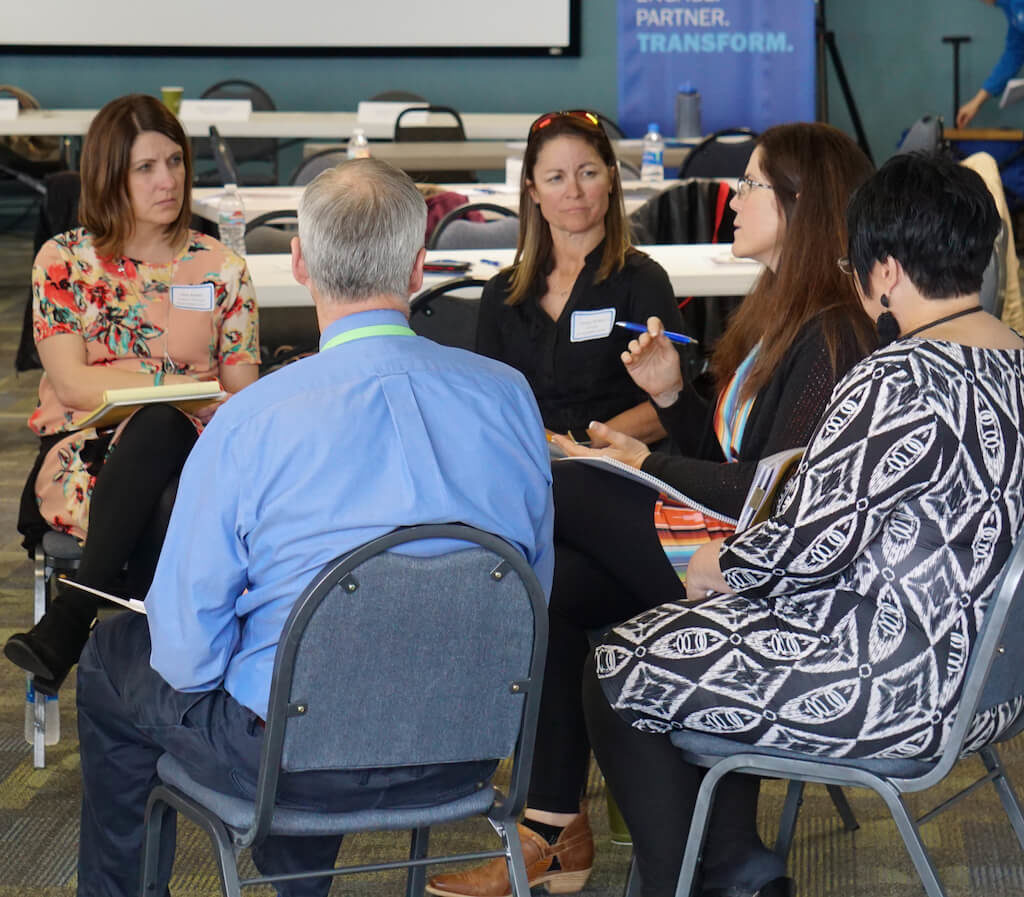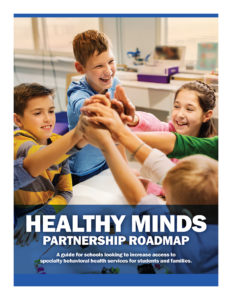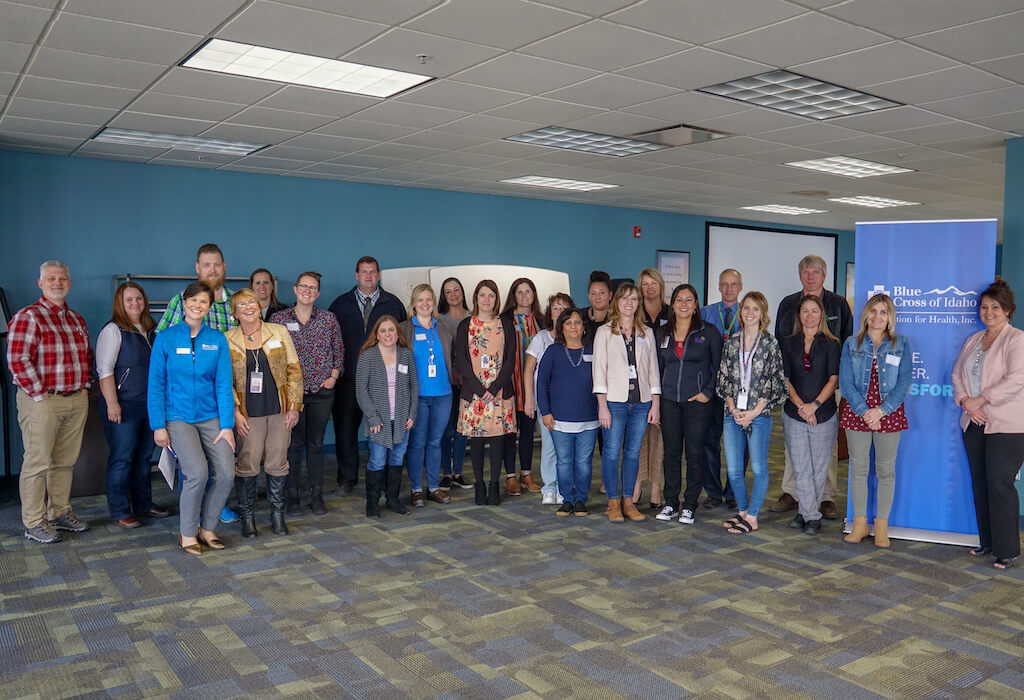
WHAT IS THE HEALTHY MINDS PARTNERSHIP?
The Healthy Minds Partnership is a collaborative effort between schools, behavioral health providers, and the Blue Cross of Idaho Foundation for Health designed to help youth receive the behavioral health services they need at school.
The premise off the partnership is simple —behavioral healthcare providers are located in schools so students can conveniently access necessary care, thus limiting absences from school and making things easier on parents who don’t have to scramble to get their kids to appointments.
Pocatello Administrator Eager to Begin, Expand Healthy Minds Partnership
The Healthy Minds Partnership is expanding to Eastern Idaho this year, and no one is happier than Tonya Wilkes, the director of student support services and athletics for the Pocatello School District.

“Words can’t describe it – it’s priceless,” Wilkes said. “We always talk about the whole child, and this tears down roadblocks and allows us to help them. This is something that has been missing. I’m excited that we get to do this.”
Four Eastern Idaho schools have spent the past nine months preparing to implement the partnership, thanks to support from the Blue Cross of Idaho Foundation for Health via its Youth Behavioral Health initiative.
The four schools are:
- 1. Blackfoot High School
- 2. Cassia Alternative High School
- 3. Declo Junior High School
- 4. Irving Middle School in Pocatello
“We are fortunate that we were chosen as this was the missing piece that we were looking for,” said Wilkes, who served as principal at Irving before moving to her new role.
REASONS FOR BELIEVING
Wilkes said the support the schools have received, namely the Healthy Minds Partnership Roadmap, have reinforced her commitment to the program. That document provides thorough, step-by-step instructions for how schools can implement the partnership.
“The roadmap is amazing,” she said. “If we had any questions, they were answered in the roadmap.”

That’s a sentiment Wilkes shared at a spring conference in Sun Valley. At a breakout session about the Healthy Minds Partnership, Wilkes stood and held up a copy of the roadmap and told the room packed full of attendees that the roadmap was all that was needed to implement the partnership at their own schools.
There are more resources than just the roadmap. As part of the support from the Foundation, schools worked with a facilitator who helped identify behavioral healthcare providers in Eastern Idaho who would be good fit and coordinated with them on all the necessary details.
In addition, a learning collaborative provided the opportunity for Wilkes and other school personnel from Irving Middle School, Blackfoot High School, Cassia Alternative High School, and Declo Junior High School and their partnering behavioral health providers (including Family Health Services, Family Pathways, and Health West) to meet with peers who have already implemented the Healthy Minds Partnership.
Nampa School District and Terry Reilly Health Services are great champions of this partnership. Nampa School District implemented the Healthy Minds Partnership in two schools in 2017-2018 and is increasing to 14 schools (58% of the district) this fall.
“Based on some of that dialogue, we were able to make corrections to what we were going to do for the better of the students,” Wilkes said. “They did a really good job of answering our questions.”

ACCESS FOR MORE CHILDREN
Wilkes believes in the program so much that she plans on expanding it within the school district to help more children.
“It should be seamless to put it in all of our schools, and that’s my goal,” she said.
The more children who can benefit from the Healthy Minds Partnership, the better.
“There are kids who have been through trauma (out of the classroom), and it’s hard for them to focus on their classes with the things many of them are dealing with,” Wilkes said. “We are finally going to be able to support them. This will help us keep them functioning so we can develop them so they can be successful.”